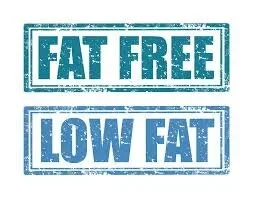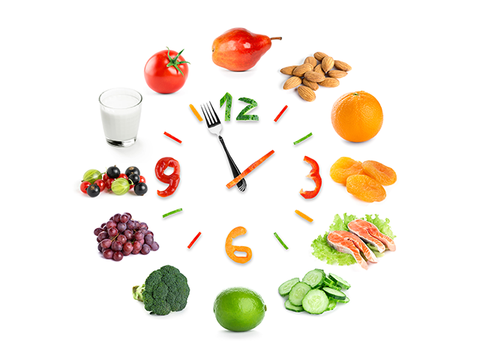
health briefs
This is smart health for real life. Short reads, clear science, practical moves. I show you where better energy, focus, and resilience come from. Follow along for data-driven insights, clinical strategies, and behind-the-scenes perspective on strategic health for individuals and companies.
Low-fat diets do not result in greater fat-loss than higher-fat diets
“Findings from our systematic literature review and meta-analysis of RCTs fail to support the efficacy of low-fat diet interventions over higher fat diet interventions of similar intensity for significant long-term clinically meaningful weight control. Previous trials comparing low-fat diet interventions with “usual diet” or minimal intensity control groups have mislead perceptions of the efficacy of reductions in fat intake as a strategy for long-term weight loss. In fact, comparisons of similar intervention intensity conclude that dietary interventions lower in total fat intake lead to significantly less weight loss compared with higher fat, low-carbohydrate diets. Health and nutrition guidelines should cease recommending low-fat diets for weight loss given the clear lack of long-term efficacy over other similar intensity dietary interventions. Additional research is needed to identify optimal intervention strategies for long-term weight loss and weight maintenance, including the need to look beyond variations in macronutrient composition.”
Read the full study here: https://www.ncbi.nlm.nih.gov/pmc/articles/PMC4667723/ and remember that all this seemingly confusing back and forth research basically taps into our need for both fat, protein and carbs - too much or too little of anything is never a good thing in the long run.
Long-term consequence of keto
Overall, our current data demonstrate that maintenance on a KD may impair glucose tolerance over time and have detrimental effects on the ability to mount a sufficient insulin response to a high-carbohydrate meal. The effects on glucose homeostasis, however, are rapidly reversible upon resumption of a high-carbohydrate diet. Finally, despite the effects of a KD on peripheral insulin and glucose tolerance, responsivity to the anorectic effects of central insulin is enhanced. The results of these studies underscore the necessity to fully examine how dietary macronutrient manipulation affects multiple metabolic parameters to identify potential consequences.” Read the full study here: https://www.ncbi.nlm.nih.gov/pmc/articles/PMC2903931/ The main take-away being that because something is good short-term, that doesn’t mean it’s good long-term.
DANISH ONLY ONLINE WEBINAR 5th of September: Minerals and their vital role for modern living
In this Danish only online webinar on 5th of September we will be discussing the vital role minerals play in our health today. To register click here: https://tidslerne.nemtilmeld.dk/173/ and read more about the event.
Turmeric: Why you may not be benefiting from it at all (do this)
“In humans receiving a dose of 2 g of curcumin alone, serum levels of curcumin were either undetectable or very low. Concomitant administration of 20 mg of piperine with curcumin, however, produced much higher concentrations within 30 min to 1 h after drug treatment; piperine increased the bioavailability of curcumin by 2,000%. Other promising approaches to increase the bioavailability of curcumin in humans include the use of nanoparticles (73), liposomes (77), phospholipid complexes (78), and structural analogues (75). “
Why timing matters (when you eat vs. what you eat)
Going back to Ayurveda we know how important proper meal timing is. Here another new study emphasizing the importance of eating to support circadian rhythm:
"Translated into human behavior, these studies suggest that dieting will only be effective if calories are consumed during the daytime when we are awake and active. They further suggest that eating at the wrong time at night will not lead to weight loss even when dieting," said Dr. Joseph S. Takahashi, Chairman of Neuroscience at UT Southwestern's Peter O'Donnell Jr. Brain Institute and Investigator with the Howard Hughes Medical Institute.
Client case: Testing elite athlete's nutrition demands
Mads Tærsbøl is one of Europe’s fastest runners and currently training for the Olympics. He is a dedicated elite athlete and he is always looking to fine-tune anything that can optimize his game. As there were no indicators of toxicity issues, we skipped this step, although we did look at markers for cell health i.e. cell charge (sodium-potassium pump, which is not really a pump, but save that for another day) and minerals as they relate to toxic load. Everything looked in range, so we decided to test for nutrient markers to ensure he is meeting his above-average dietary needs for peak performance. In these times where our soil is so depleted and there is a constant battle in the media about strict vegan vs. meat-and-more-meat philosophies, it becomes evident that we should simply test and not guess, when it comes to health matters and dietary needs for our bodies.






